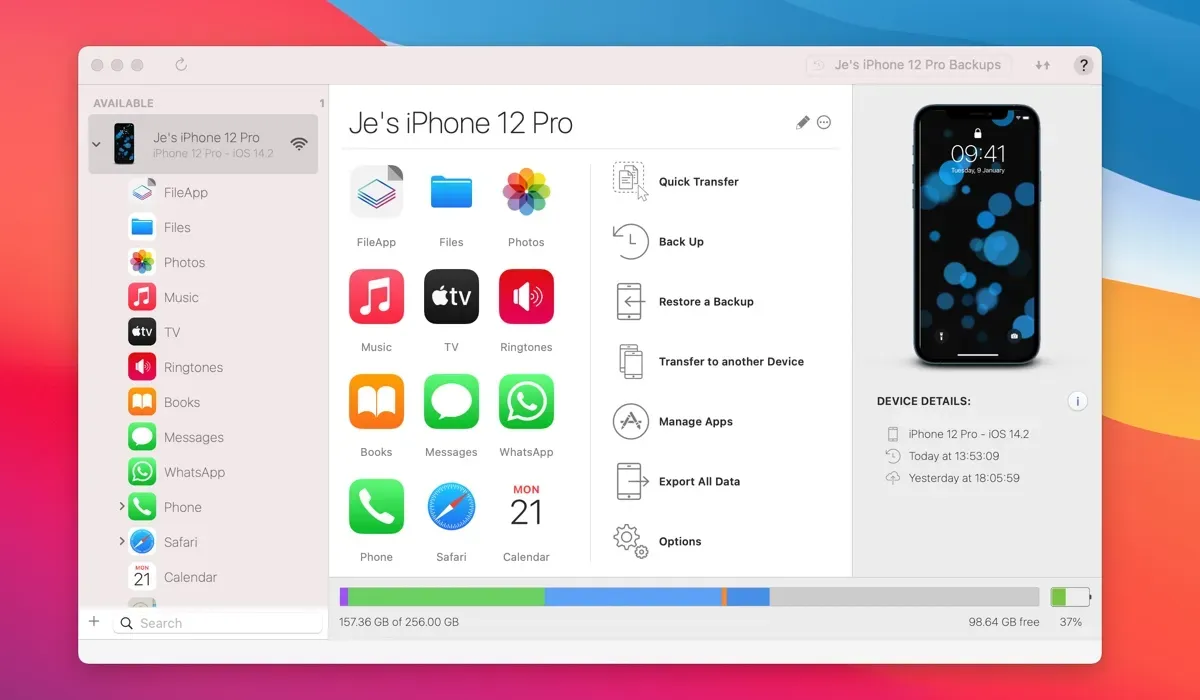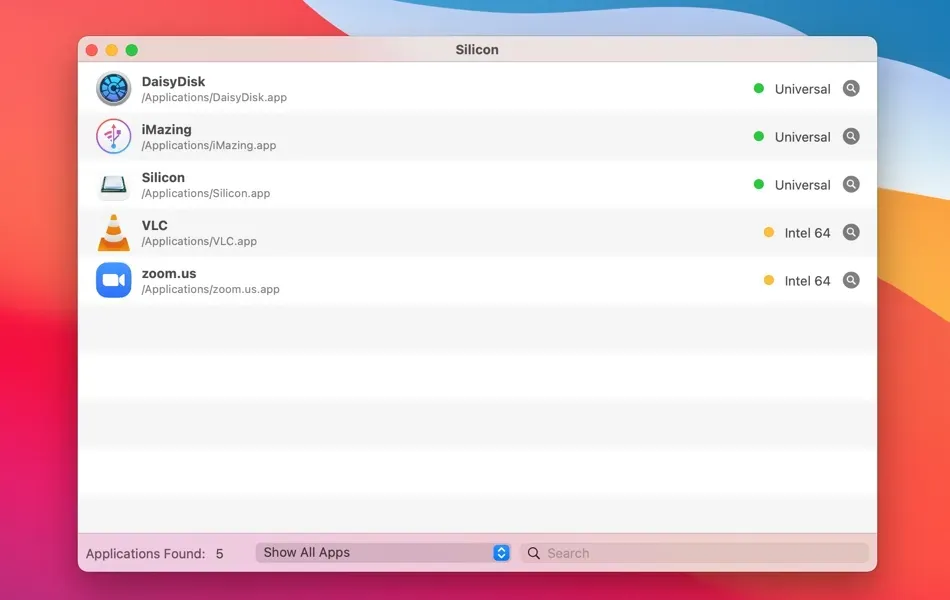iMazing, Big Sur & Apple Silicon
Apple's shift to their own ARM-based custom chips in the Mac product line has begun, and that's truly something to be excited about. The jump in performance is stunning – in our tests, the new M1 MacBook Air was able to compile iMazing twice as fast as a 2019 fully specced MacBook Pro. The $1000 dollar machine is running loops around the $4000 dollar one, without even breaking a sweat. Now, apps will only take full advantage of the new chips if they have been rebuilt to run natively on the new architecture. Otherwise, they'll run in compatibility mode via Apple's Rosetta 2.
Does iMazing run natively on Apple Silicon?
Yes! Simply make sure that you're running iMazing 2.13.2 or higher. iMazing doesn't look very different, but it runs faster and consumes less energy on M1 Macs thanks to the native Apple Silicon support. Of course, supporting Apple Silicon also means fully supporting macOS 11 Big Sur:

Which other apps have made the jump?
Developers large and small have largely adopted Apple's new chipset already. Microsoft's Office Suite for Mac has been updated with Apple Silicon support in record time, and that's a very strong signal as to the industry's sentiment.
If you wish to check which apps have or haven't been updated yet, you can use our simple and open-source Silicon app available here: iMazing Free Downloads page.
- Download and launch Silicon
- Click Start Scanning
- Browse the results
Only apps marked with a green dot will fully take advantage of Apple Silicon:

And just in case you find yourself itching to post on social media about your favorite app that doesn’t yet run natively on your shiny new Mac, you should first make sure that the app is up to date, and run Silicon’s scan again.
We expect all well maintained apps will have issued compatibility updates very soon. But let's not forget that those who haven't yet may very well have good reasons to be late to the party: many apps depend on third party libraries which need to be updated as well, and that web of dependencies can result in substantial delays when it comes to adopting new architectures.